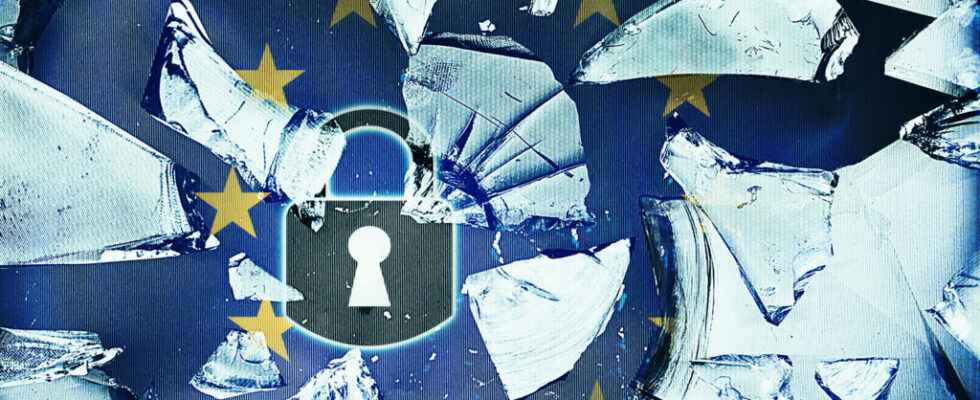Soon, new European regulations will concern the European media: the Digital Services Acton digital services, and the Media Freedom Act, on the media themselves. Two European texts which are not at the same point of maturation, because the DSA has been adopted and will enter into force from mid-November, while the text on freedom in the media, the Media Freedom Actis still only a proposal for legislation presented on September 16 by Brussels.
the Digital Services Act intended to ” make illegal online what is illegal offline as said Thierry Breton, Commissioner for the Internal Market. The regulations therefore seek to make platforms accountable by combating illegal content, i.e. child pornography, disinformation, incitement to hatred or counterfeiting. It concerns both Internet access providers, cloudsthat very large search engines or online platforms such as Google, Facebook, Apple, Amazon, Microsoft, etc.
► To read also: Can Europe guarantee a safer Internet for its citizens?
Concretely, Internet users will have to be offered a tool to report illegal content to a trusted intermediary and the platforms will have to quickly block access to this content. These same platforms will have to make their moderation decisions more transparent by giving users whose account is suspended the possibility of contesting this decision. They must explain how their algorithms work to recommend advertising content based on the profile of Internet users and offer a recommendation system that is not based on such profiling. They will also have to provide the algorithms of their interfaces to the Commission, to national authorities and even, for key data, to researchers.
In the event of non-compliance with this DSA, web giants may be fined up to 6% of their turnover.
Strengthen media pluralism and independence
Whose is it for Media Freedom Act, the idea is to complete the DSA by requiring platforms to warn the media when they want to remove their content. But it is also a question of fighting against political interference by governments in the media, as we have seen in Hungary, Poland or Slovenia. It is also a means of protecting the independence of journalists against concentration while reinforcing transparency on media ownership.
This is not to the liking of the European associations of newspaper or magazine publishers who fear that by leaving the editor-in-chief alone the editorial responsibility, this comes into contradiction with the penal liability of the publisher. But Brussels observes that the interference of shareholders is indeed a reality observed in around twenty countries.
► To listen also: Turkey: a law against disinformation denounced as an instrument of censorship
